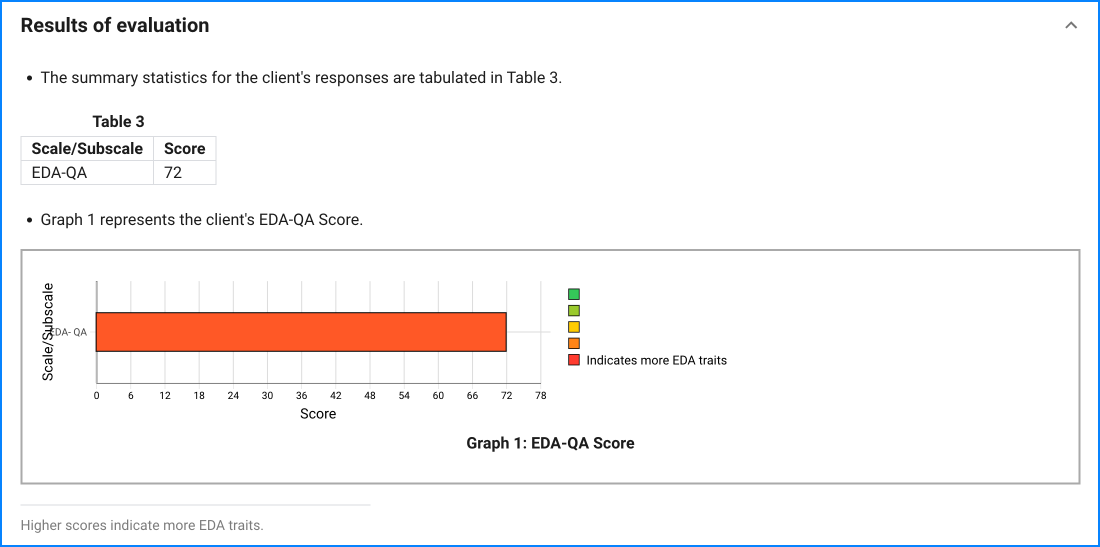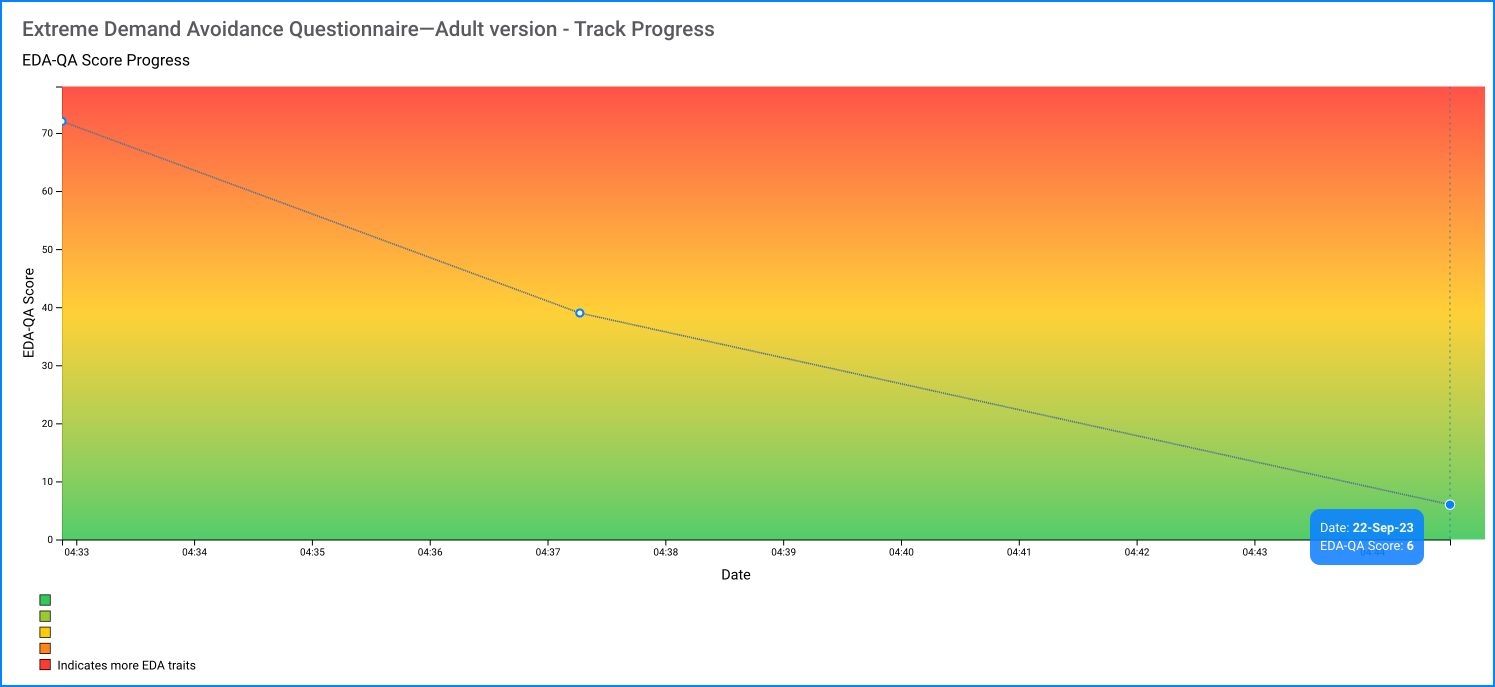Since the questionnaire relies on client self-report, all responses should be verified by the clinician, and a definitive diagnosis is made on clinical grounds taking into account how well the client understood the questionnaire, as well as other relevant information from the client.
The (Extreme Demand Avoidance Questionnaire—Adult version; EDA-QA) is adaptation of an informant-rating instrument (the Extreme Demand Avoidance Questionnaire; EDA-Q) for use as a self-report measure of traits and behaviours related to PDA in adults without intellectual impairment.
One of the inherent difficulties studying a person with PDA is that they may be resistant to doing things asked of them, or to complete a research protocol where they have to abide by the rules and structures imposed by the researcher. Thus, this scale may be challenging to administer with persons in a clinical context who express more extreme presentations, lack adaptive skills or self-awareness, or are unwilling to comply and engage with research.
Persons in closed settings or with particularly acute apparent PDA may be designated as non-compliant or demand-avoidant, despite the person’s withdrawing engagement being the only expression of autonomy that they have. In such cases, labeling the individual as demand avoidant arguably reflects the needs of the person with authority over the ‘demand-avoiding’ individual. Given the avoidant person may be high in features of ASD, there may be mutual incomprehension regarding a need to communicate or engage in particular activities. Improving communication with persons who express PDA may be critical for more constructive and ethical engagement and assessment. From the perspective of the ASD individual, avoiding demands may represent an effective way of functioning when an asocial behavioural strategy is adopted to optimize individual rather than group survival.




